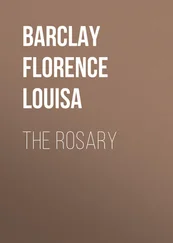Florence Barclay - The White Ladies of Worcester - A Romance of the Twelfth Century
Здесь есть возможность читать онлайн «Florence Barclay - The White Ladies of Worcester - A Romance of the Twelfth Century» — ознакомительный отрывок электронной книги совершенно бесплатно, а после прочтения отрывка купить полную версию. В некоторых случаях можно слушать аудио, скачать через торрент в формате fb2 и присутствует краткое содержание. Жанр: foreign_prose, foreign_antique, на английском языке. Описание произведения, (предисловие) а так же отзывы посетителей доступны на портале библиотеки ЛибКат.
- Название:The White Ladies of Worcester: A Romance of the Twelfth Century
- Автор:
- Жанр:
- Год:неизвестен
- ISBN:нет данных
- Рейтинг книги:3 / 5. Голосов: 1
-
Избранное:Добавить в избранное
- Отзывы:
-
Ваша оценка:
- 60
- 1
- 2
- 3
- 4
- 5
The White Ladies of Worcester: A Romance of the Twelfth Century: краткое содержание, описание и аннотация
Предлагаем к чтению аннотацию, описание, краткое содержание или предисловие (зависит от того, что написал сам автор книги «The White Ladies of Worcester: A Romance of the Twelfth Century»). Если вы не нашли необходимую информацию о книге — напишите в комментариях, мы постараемся отыскать её.
The White Ladies of Worcester: A Romance of the Twelfth Century — читать онлайн ознакомительный отрывок
Ниже представлен текст книги, разбитый по страницам. Система сохранения места последней прочитанной страницы, позволяет с удобством читать онлайн бесплатно книгу «The White Ladies of Worcester: A Romance of the Twelfth Century», без необходимости каждый раз заново искать на чём Вы остановились. Поставьте закладку, и сможете в любой момент перейти на страницу, на которой закончили чтение.
Интервал:
Закладка:
The Prioress rose and stretched wide her arms to the sunlit garden, to the bough where the robin sang.
"Oh, to be one with God and with Nature!" she cried. "Oh, to know the essential mysteries of Life and Light and Love! This is Life Eternal!"
She had forgotten the old lay-sister; aye, for the moment she had forgotten the Convent and the cloister, the mile-long walk in darkness, the chant of the unseen monks. She trod again the springy heather of her youth; she heard the rush of the mountain stream; the sigh of the great forest; the rustle of the sunlit glades, alive with, life. These all were in the robin's song. Then–
Within the Convent, the Refectory bell clanged loudly.
The Prioress let fall her arms.
She picked up the nosegay of weeds.
"Come, Antony," she said, "let us go and discover whether Sister Mary Augustine hath contrived to make the pasties light and savoury, even without the aid of the advice she might have had from thee."
Old Mary Antony, gleeful and marvelling, followed the stately figure of the Prioress. Never was shriven soul more blissfully at peace. She had kept back nothing; yet the Reverend Mother had imposed no punishment, had merely asked a promise which, in the fulness of her gratitude, Mary Antony had found it easy to give.
Truly the broth of Mother Sub-Prioress should, for the future, contain naught but what was grateful and soothing.
But, as she entered the Refectory behind the Reverend Mother and saw all the waiting nuns arise, old Mary Antony laid her finger to her nose.
"That 'little bird' shall have the castor beans," she said, "That 'little bird' shall have them. Not my pretty robin, but the other!"
And, sad to say, poor Sister Seraphine was sorely griped that night, and suffered many pangs.
CHAPTER VII
THE MADONNA IN THE CLOISTER
The Prioress knelt, in prayer and meditation, before the figure of the Virgin Mother holding upon her knees the holy Babe.
Moonlight flooded the cell with a pure radiance.
Mary Antony's posy of weeds, offered, according to promise, at the Virgin's shrine, took on, in that silver splendour, the semblance of lilies and roses.
The Prioress knelt long, with clasped hands and bowed head, as white and as motionless as the marble before her. But at length she lifted her face, and broke into low pleading.
"Mother of God," she said, "help this poor aching heart; still the wild hunger at my breast. Make me content to be at one with the Divine, and to let Nature go. . . . Thou knowest it is not the man I want. In all the long years since he played traitor to his troth to me, I have not wanted the man. The woman he wed may have him, unbegrudged by me. I do not envy her the encircling of his arms, though time was when I felt them strong and tender. I do not want the man, but—O, sweet Mother of God—I want the man's little child! I envy her the motherhood which, but for her, would have been mine. . . . I want the soft dark head against my breast. . . . I want sweet baby lips drawing fresh life from mine. . . . I want the little feet, resting together in my hand. . . . All Nature sings of life, and the power to bestow life. Yet mine arms are empty, and my strength does but carry mine own self to and fro. . . . Oh, give me grace to turn my thoughts from Life to Sacrifice."
The Prioress rose, crossed the floor, and knelt long in prayer and contemplation before the crucifix.
The moonlight fell upon the dying face of the suffering Saviour, upon the crown of thorns, the helpless arms out-stretched, the bleeding feet.
O, Infinite Redeemer! O, mighty Sacrifice! O, Love of God, made manifest!
The Prioress knelt long in adoring contemplation. At intervals she prostrated herself, pressing her forehead against the base of the cross.
At length she rose and moved toward the inner room, where stood her couch.
But even as she reached the threshold she turned quickly back, and kneeling before the Virgin and Child clasped the little marble foot of the Babe, covered it with kisses, and pressed it to her breast.
Then, lifting despairing eyes to the tender face of the Madonna: "O, Mother of God," she cried, "grant unto me to love the piercèd feet of thy dear Son crucified, more than I love the little, baby feet of the Infant Jesus on thy knees."
A great calm fell upon her after this final prayer. It seemed, of a sudden, more efficacious than all the long hours of vigil. She felt persuaded that it would be granted.
She rose to her feet, almost too much dazed and too weary to cross to the inner cell.
A breath of exquisite fragrance filled the air.
At the feet of the Madonna stood a wondrous bouquet of lilies of the valley and white roses.
Pale but radiant, the Prioress passed into her sleeping-chamber. The loving heart of old Mary Antony had been full of lilies and roses. It was not her fault that her old hands had been filled with weeds. Divine Love, understanding, had wrought this gracious miracle.
As the Prioress stretched herself upon her couch, she murmured softly: "The Lord seeth not as man seeth: for man looketh on the outward appearance, but the Lord looketh on the heart.
"And, after all, this miracle of the Divine perception doth take place daily.
"Alas, when our vaunted roses and lilies appear, in His sight, as mere worthless weeds.
"The Lord looketh on the heart."
When the Prioress awoke, the sunlight filled her chamber.
She hastened to the archway between the cells, and looked.
The dandelions seemed more gaily golden, in the morning light. The bindweed had faded.
The Prioress was disappointed. She had counted upon sending early for old Mary Antony. She had pictured her bewildered joy. Yet now the nosegay was as before.
Morning light is ever a test for transformations. Things are apt to look again as they were.
But a fragrance of roses and lilies still lingered in the chamber.
The blessèd Virgin smiled upon the Babe.
And there was peace in the heart of the Prioress. Her long vigil, her hours of prayer, had won for her the sense of a calm certainty of coming victory.
Strong in that certainty, she bent, and gently kissed the little feet of the holy Babe.
Then, as was her wont, she sounded the bell which called the entire community to arise, and to begin a new day.
CHAPTER VIII
ON THE WINGS OF THE STORM
In the afternoon of that day, Mary Antony awaited, in the cloisters, the return of the White Ladies from Vespers. Twenty only, had gone; and, fearful lest she should make mistake with the unusual number, the old lay-sister spent the time of waiting in counting the twenty peas afresh, passing them back and forth from one hand to the other.
Mother Sub-Prioress was still unable to leave her bed.
Sister Mary Augustine stayed to tend her.
Sister Teresa was in less pain, but fevered still, and strangely weak. The Reverend Mother forbade her to rise.
Shortly before the bell rang calling the nuns to form procession in the cloisters, Sister Seraphine declared herself unable for the walk, and begged to be allowed to remain behind. The Prioress found herself misdoubting this sudden indisposition of Sister Seraphine who, though flushed and excited, shewed none of the usual signs of sickness.
Not wishing, however, to risk having a third patient upon her hands, the Reverend Mother gave leave for her to stay, but also elected to remain behind, herself; letting Sister Mary Rebecca, who had recovered from her indisposition, lead the procession.
Thus the Reverend Mother contrived to keep Sister Seraphine with her during the absence of the other nuns, giving her translations from the Sacramentaries to copy upon strips of vellum, until shortly before the hour when the White Ladies would return from Vespers, when she sent her to her cell for the time of prayer and meditation.
Читать дальшеИнтервал:
Закладка:
Похожие книги на «The White Ladies of Worcester: A Romance of the Twelfth Century»
Представляем Вашему вниманию похожие книги на «The White Ladies of Worcester: A Romance of the Twelfth Century» списком для выбора. Мы отобрали схожую по названию и смыслу литературу в надежде предоставить читателям больше вариантов отыскать новые, интересные, ещё непрочитанные произведения.
Обсуждение, отзывы о книге «The White Ladies of Worcester: A Romance of the Twelfth Century» и просто собственные мнения читателей. Оставьте ваши комментарии, напишите, что Вы думаете о произведении, его смысле или главных героях. Укажите что конкретно понравилось, а что нет, и почему Вы так считаете.












